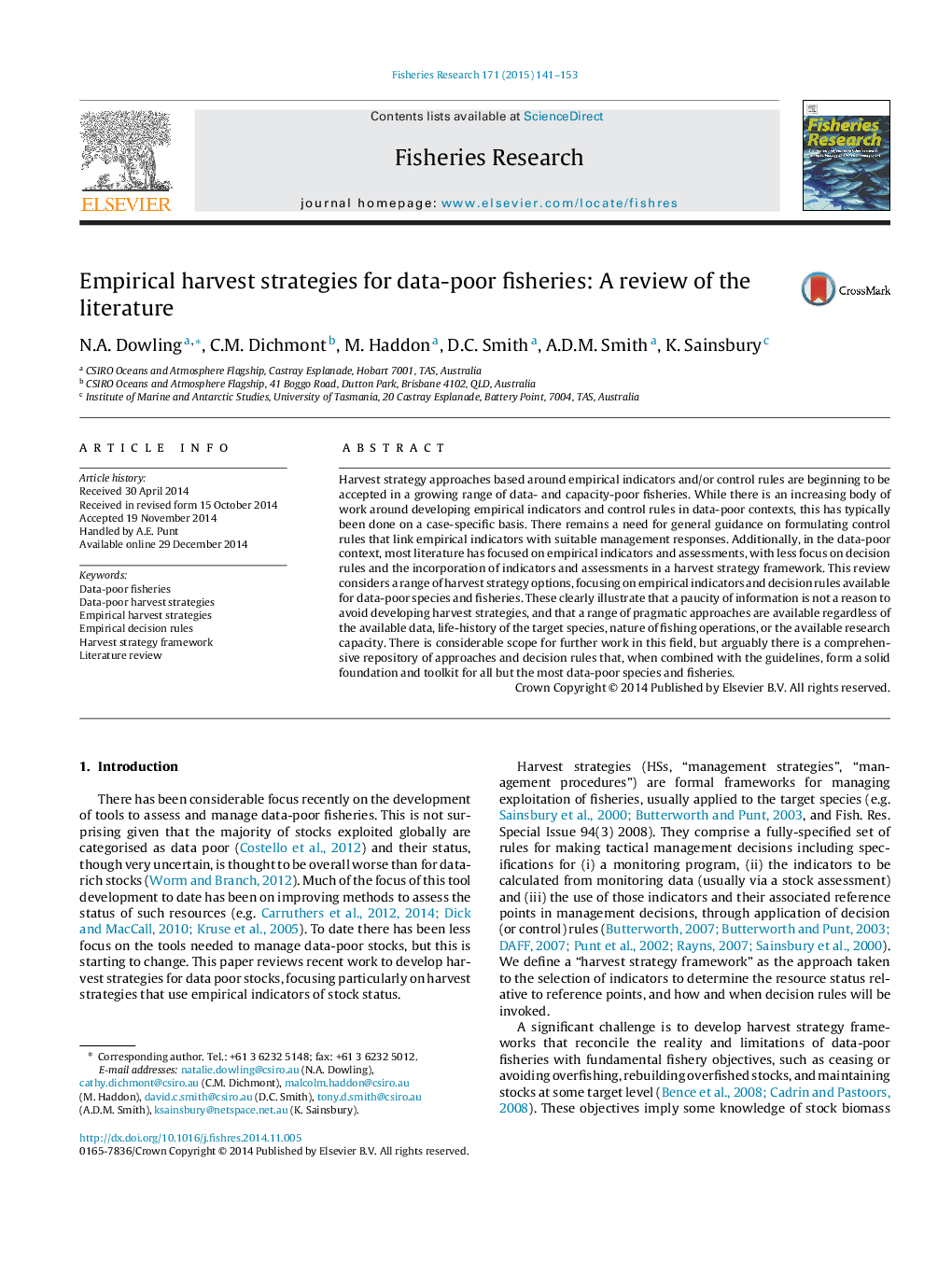| Article ID | Journal | Published Year | Pages | File Type |
|---|---|---|---|---|
| 4542778 | Fisheries Research | 2015 | 13 Pages |
•This review summarises the literature describing empirical harvest strategies for data poor fisheries.•A paucity of information is not a reason to avoid developing harvest strategies.•A range of pragmatic approaches are available regardless of the available data.
Harvest strategy approaches based around empirical indicators and/or control rules are beginning to be accepted in a growing range of data- and capacity-poor fisheries. While there is an increasing body of work around developing empirical indicators and control rules in data-poor contexts, this has typically been done on a case-specific basis. There remains a need for general guidance on formulating control rules that link empirical indicators with suitable management responses. Additionally, in the data-poor context, most literature has focused on empirical indicators and assessments, with less focus on decision rules and the incorporation of indicators and assessments in a harvest strategy framework. This review considers a range of harvest strategy options, focusing on empirical indicators and decision rules available for data-poor species and fisheries. These clearly illustrate that a paucity of information is not a reason to avoid developing harvest strategies, and that a range of pragmatic approaches are available regardless of the available data, life-history of the target species, nature of fishing operations, or the available research capacity. There is considerable scope for further work in this field, but arguably there is a comprehensive repository of approaches and decision rules that, when combined with the guidelines, form a solid foundation and toolkit for all but the most data-poor species and fisheries.
